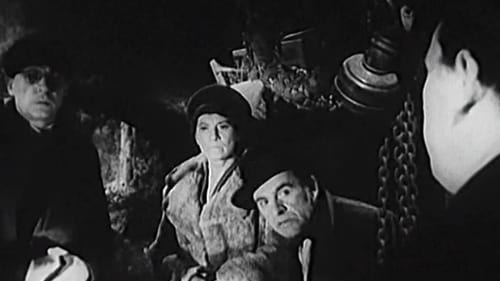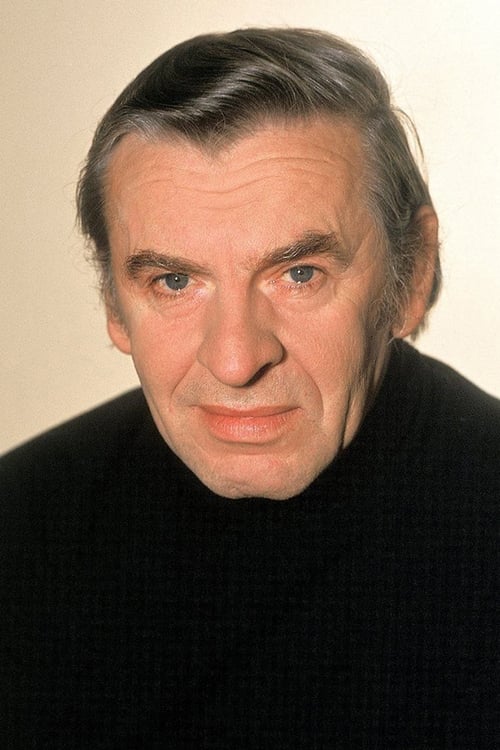
Jozef Kroner
Nascimento : 1924-03-20, Staškov, Czechoslovakia
Morte : 1998-03-12
História
Pochádza z dvanástich detí. Začínal ako robotník v Trenčíne, neskôr ako vedúci dielne v Považskej Bystrici. Popri práci sa venoval ochotníckemu divadlu. Začínal v Armádnom divadle v Martine (1948 - 1956). Od roku 1956 pôsobil v činohre SND v Bratislave až do roku 1984, keď odišiel do dôchodku. Účinkoval v mnohých televíznych filmoch a seriáloch - Kubo (1965), Živý bič (1966), Rysavá jalovica (1970), Ruže a sneh, Vôňa remesla, Slovácko sa nesúdi (1978, 1984), Sváko Ragan (1975), Nech žije deduško (1978). Je autorom kníh: Herec na udici (1970), Herec nielen na udici (1974), S kamerou a s udicou (1979),Neobyčajný testament (1982) a O rybke Beličke (1983). O jeho živote a tvorbe nakrútil režisér Fero Fenič tv. film Trate Jozefa Kronera (1987). Na základe hlasovania slovenských filmových novinárov v Ankete 2000 sa Jozef Kroner stal slovenským hercom 20. storočia. Keď bol na dôchodku, rád hubárčil. Nesmierne miloval Liptov, rád sa prechádzal na Podbánskom. Bol ubytovaný, väčšinou, u svojho veľmi dobrého priateľa Milana Lehotského v Liptovskom Hrádku na ulici Hradnej ( v tej dobe Leninova ulica ). Spolu chodili aj na dobré slovenské pivo do krčmy Svieženka ( dnes Esspresso Svieženka ). Naposledy tam bol v roku 1995.
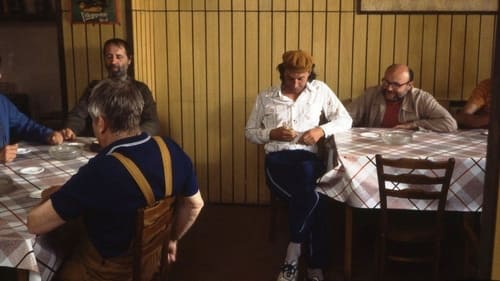
Košťál
Bohus is indolent and spends his days drinking brandy. One day he finds he has inherited a brickworks, several shops and a five-star hotel. Bohus sets out to tour his new empire, insulting everyone on the way.

Református pap
A man who leads a lonely existence with his young daughter accidentally gets involved with a robbery before a manhunt ensues.

Georg Henih
А dying man reveals to his young friend, a child of 8, the fairy world of music.

Grandfather
Occupied by family problems, a 13 year old Vojto takes every responsibility around the house. One day while on a train to school, he sees this girl, Kajka, and falls madly in love with her. Despite his busy life, he decides to win her heart by any means possible.

Nyáry György
This sarcastic drama is taken from the popular Hungarian novel by Tibor Dery. A terminally ill writer (Jozef Kroner) of national prominence watches as family and friends gather like vultures for his imminent demise. Relli (Alexander Bardini) smiles and pretends to be the writer's friend as he tries to get his hands on an unpublished manuscript. The opening scene is the highlight of the film. While the dead writer is being laid to rest in a national funeral, he emerges from the coffin and walks into his own grave while the mourners flee in terror.

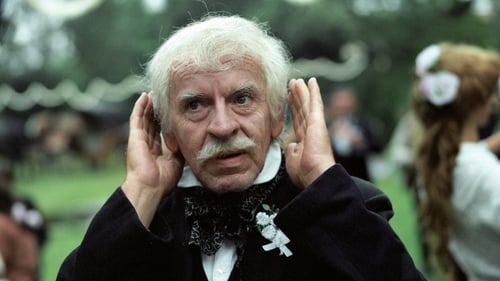
Martin Pichanda
A family saga taking place mostly in a small Slovak village over a period of thirty years (1887–1917). The first part captures the life of Martin Pichandu in the development of his craft, masonry; in the second part, his son is center stage living in a period of socio-political crisis, which ultimately results in the first World War. After originally airing on Czechoslovakian television in 1983 as a four-part 226-minute mini-series, this production received a 163-minute theatrical release in 1984.
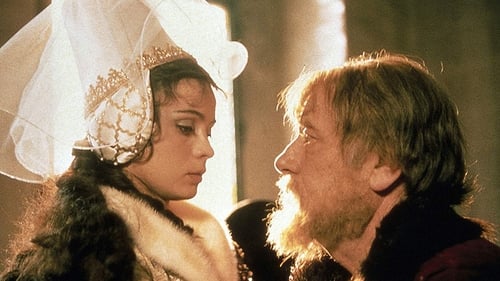
Šašo
A fairy-tale about the power of love. The old king Pravoslav feels it is time to entrust the rule over his kingdom to one of his three daughters - the one that loves him the most. The youngest, Maruška, fails her father's expectations about proving how deep her love him is. He misunderstands her and she is made to leave the castle. She faces many dangers on the way to her loved one, the Salt Prince.

Sablica
A fairy-tale about knight honour, punished evil and tender love. Three royal brothers are put to the test in the fight with the king of the underworld in order to save captured princess, Láskykvet.

Szombathy, osztályfõnök
A Budapest high school in the beginning of the 1960s. Dini suffers the torments of adolescence. His father had to leave Hungary after the uprise in 1956, and since then Dini's mother has had to take care of her two sons on her own. A friend of Dini’s father, Bodor, is released from prison and moves in with them. Dini and his brother are far from happy about this intrusion on their family life.
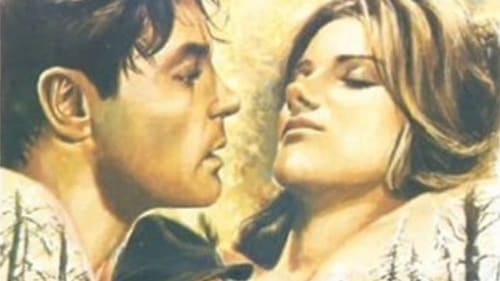
Marek
A hunting party arrives at a lodge in the Tatra mountains in Slovakia, where one woman in the party had “accidentally” shot and killed her first husband some time ago.
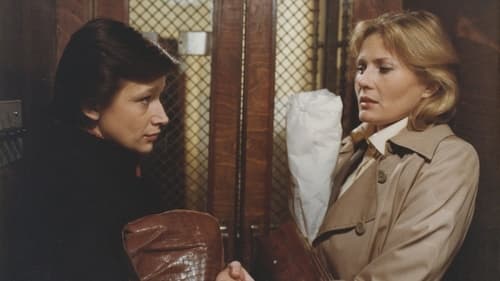
Comrade Erdõs
Political and sexual repression in Hungary, just after the revolution of 1956. In 1958, the body of Eva Szalanczky, a political journalist, is discovered near the border. Her friend Livia is in hospital with a broken neck; Livia's husband, Donci, is under arrest. In a flashback to the year before, we see what leads up to the tragedy. Eva gets a job as a writer. She meets Livia and is attracted to her. Livia feels much the same, but as a married woman, has doubts and hesitations. In their work, they (and Eva in particular) bang up against the limits of telling political truths; in private, they confront the limits of living out sexual and emotional truth.
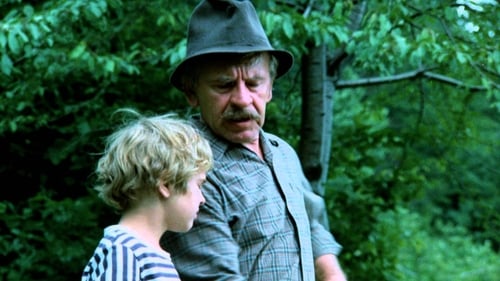
Otec

Satire from the makers of hungarian classic Love (1971): director Károly Makk and writer Tibor Déry. Made for TV.

Lovely overview of traditional Slovak Christmas.
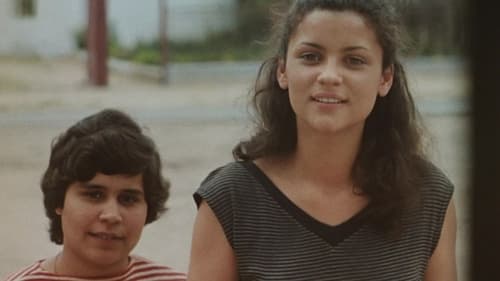
Marcel (voice)
Jakub, a dreamer and budding magician, juggles between parcels and services rendered to the villagers. His eyes cross that of the beautiful gypsy Jolanka. Together, they will try to live a first and big love, despite the pressure of their respective communities.

Pacho
A funny outlaw tale inspired by traditional folk humour. Pacho is no ordinary outlaw. He detests injustice and feudal oppression and he copes with each troublesome situation with the help of his cleverness and wit.

Dialogue
Who could forget the Favorites figure Svákov Ragan in acting creations neopakovatel'ného Jozef Kroner? Three-part television film Sváko Ragan, created according to stories Ela Sándor already at its first introduction many years ago, soon won favor with audiences. Brought not only good fun, but also an attractive view of a world Myjavská site with many rustic Alpine traditions and characters and witty dialect used, especially Myjavský and Brezovský. Above all this, however, it is dominated by the ability to invent Svákov Ragan was even in the most uncomfortable situations ... Brezovskí tanners have been known not only to the quality of its products, but ischopnosťou their products at fairs successfully foreground. Highly after the fairs and markets in the near and distant surroundings Birch Nachod and Sváko Ragan and no wonder that their business has seen wandering the lot but cheerful and made many hilarious but also less hilarious "deal" ...

Sváko Ragan
Who could forget the Favorites figure Svákov Ragan in acting creations neopakovatel'ného Jozef Kroner? Three-part television film Sváko Ragan, created according to stories Ela Sándor already at its first introduction many years ago, soon won favor with audiences. Brought not only good fun, but also an attractive view of a world Myjavská site with many rustic Alpine traditions and characters and witty dialect used, especially Myjavský and Brezovský. Above all this, however, it is dominated by the ability to invent Svákov Ragan was even in the most uncomfortable situations ... Brezovskí tanners have been known not only to the quality of its products, but ischopnosťou their products at fairs successfully foreground. Highly after the fairs and markets in the near and distant surroundings Birch Nachod and Sváko Ragan and no wonder that their business has seen wandering the lot but cheerful and made many hilarious but also less hilarious "deal" ...

Varga János

1943. Captain Ian Nalepke, Chief of Staff of the Slovak regiment, bearing protection of military facilities in the small town of Belarus contacts the partisansand passes to them the obtained information about upcoming operations of the German forces.
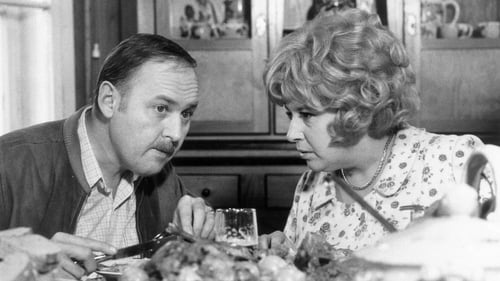
Kastl is a hairdresser but his real passion is his second job as football referee. This job takes all his free time and makes his wife very nervous.
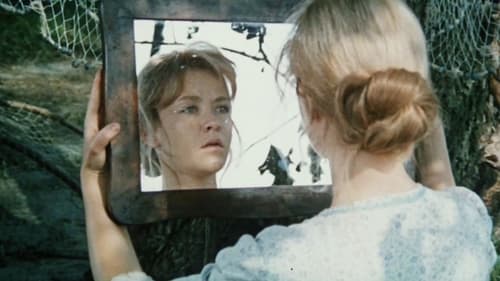
Koktavý
A fisherman saves Anada, a woman adrift, from drowning. He takes her to his home, and protects her. Eventually, she occupies a larger place than was to be expected. He commits adultery with her, but his own wife seems to be in love with the strange young woman.

Adam Krt

Narrator (voice)

Trusockij

Tatár (voice)

Old man (segment "The Sixty-Year-Olds")
"Using the same, three times repeating dialogue – dramatic conversation between man and woman – Jerzy Skolimowski from Poland, Slovak director Peter Solan and Czech director Zbynìk Brynych shot three different stories. The result was an extraordinary experiment in the world cinema, which we can call an insight in the relationships of men and women of different age groups, an analysis of love and marriage of those who are at the beginning, in the middle or going towards the end of their life."


Franz
A man may or may not have betrayed a resistance fighter during World War II. He has supposedly been shot down by the Nazis and wanders into town. Mourning the death of an unseen comrade, he is taken in by the family of the dead rebel. He engages in a superfluous affair and witnesses the lesbian relationship between the man's sister and a female servant. When passions subside, the family has doubts about the reliability of the man's story.

Clown
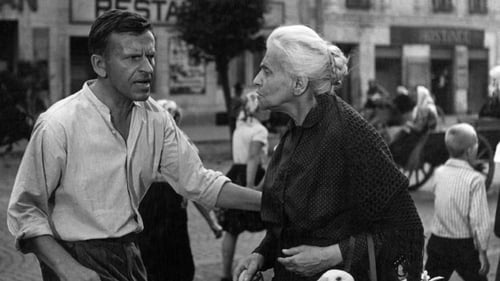
Antonin 'Tono' Brtko
Um inepto camponês Tcheco divide-se entre a ganância e a culpa quando um chefe da base nazista de sua cidade o nomeia "Supervisor Ariano" de uma loja de botões de uma idosa viúva judia. Humor e tragédia fundem-se na sarcástica exploração da cordialidade de um homem comprometido com o horror do regime totalitário.

Kubo
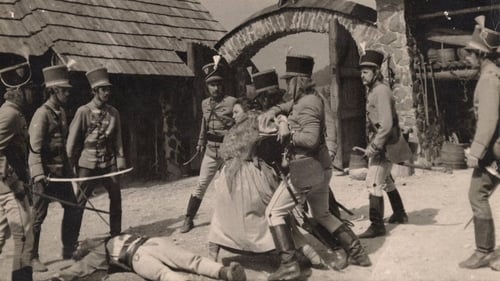
Father Urhocik
This film is one of the most popular pictures of Slovak cinema and relates the story about the legendary folk hero and brigand Juro Jánošík [1688-1713] and the social situation in Slovakia of the late 17th and early 18th centuries. The first part talks about Jánošík's childhood, studies and return to his native village. In the second part Jánošík leaves for the hills, where he organizes his band of brigands and starts an anti-feudal resistance. The film concludes with Jánošík's execution.

Valentin Kubis

Uncle Kosalkula

Jožko Púčik
Set in Bratislava in the 1930s, about a clerk at a humanitarian foundation who is unjustly accused of embezzling a large sum of money.

Jakub Krvaj, bývalý kat
This dramatic story is situated in the town of Trnava of the 18th century. Painter Peter paints an altar-piece of the Martyrdom of St. Juliet and his model is a young girl. This is much disliked by the clergy who unjustly accuse the girl of witchcraft. She is saved from being burnt at a stake by the students of the Trnava University. (IMDb)

Background Officer
Episodic film consisting of three satirical shorts ('Smutný káder', 'Typický prípad' and 'Vel'korysá kampaň') comically exposing the shortcomings of society. In the interval between each short, a committee recognising themselves in the characters on screen, voice their approval or disapproval of each film.

Sásik
A comedy film taking an ironic view of the bourgeois period prior to the First World War.

Slovak movie is based on the novel by the prominent representative of Slovak prose František Hečka, who was in 1952 awarded the State Prize. The novel and the movie successfully capture the development of Slovak village after the liberation in 1945. The narrative is centred around the characters of the old Púplava, who after the liberation begins to organise a new village life, and his struggle for the construction of settlements Mrzáčky, burnt by the fascists. It is centred around the conflict, greatly reflecting the situation of the countryside at this time: the conflict between the rural poor and the rural rich. In the movie, a rich personal and emotional life of other heroes pulsate besides the main storyline. The movie ends with the final defeat of the reactionary forces by Communists in February 1948, taking over all power in the state of workers and peasants. - "The Wooden Village" is released in celebration of the 7th anniversary of the Communist February Victory.

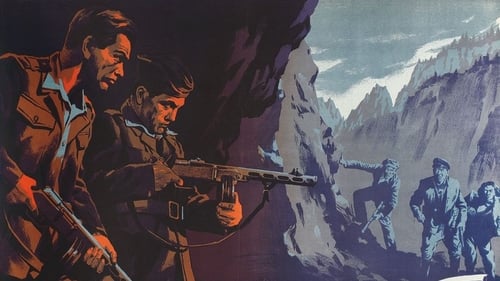
shoemaker
Film shows the struggle of the Czechoslovak armed forces against groups of Ukrainian Insurgent Army (UPA) under command Burlak, who tried to pass through the territory of Slovakia.
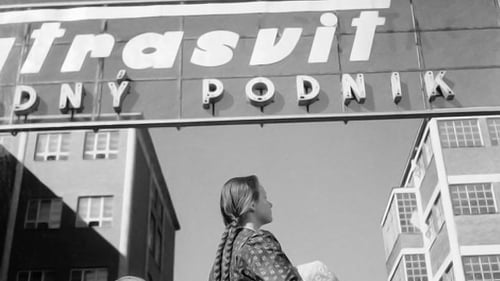
Jozef
Strong-willed peasant girl Katka disobeys her father and heads to the city to work in a factory, where no one knows quite what to make of her.














